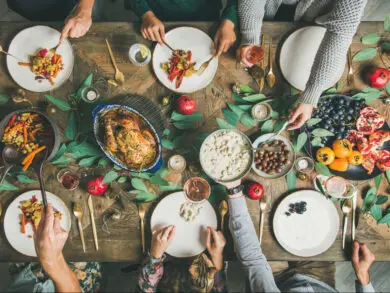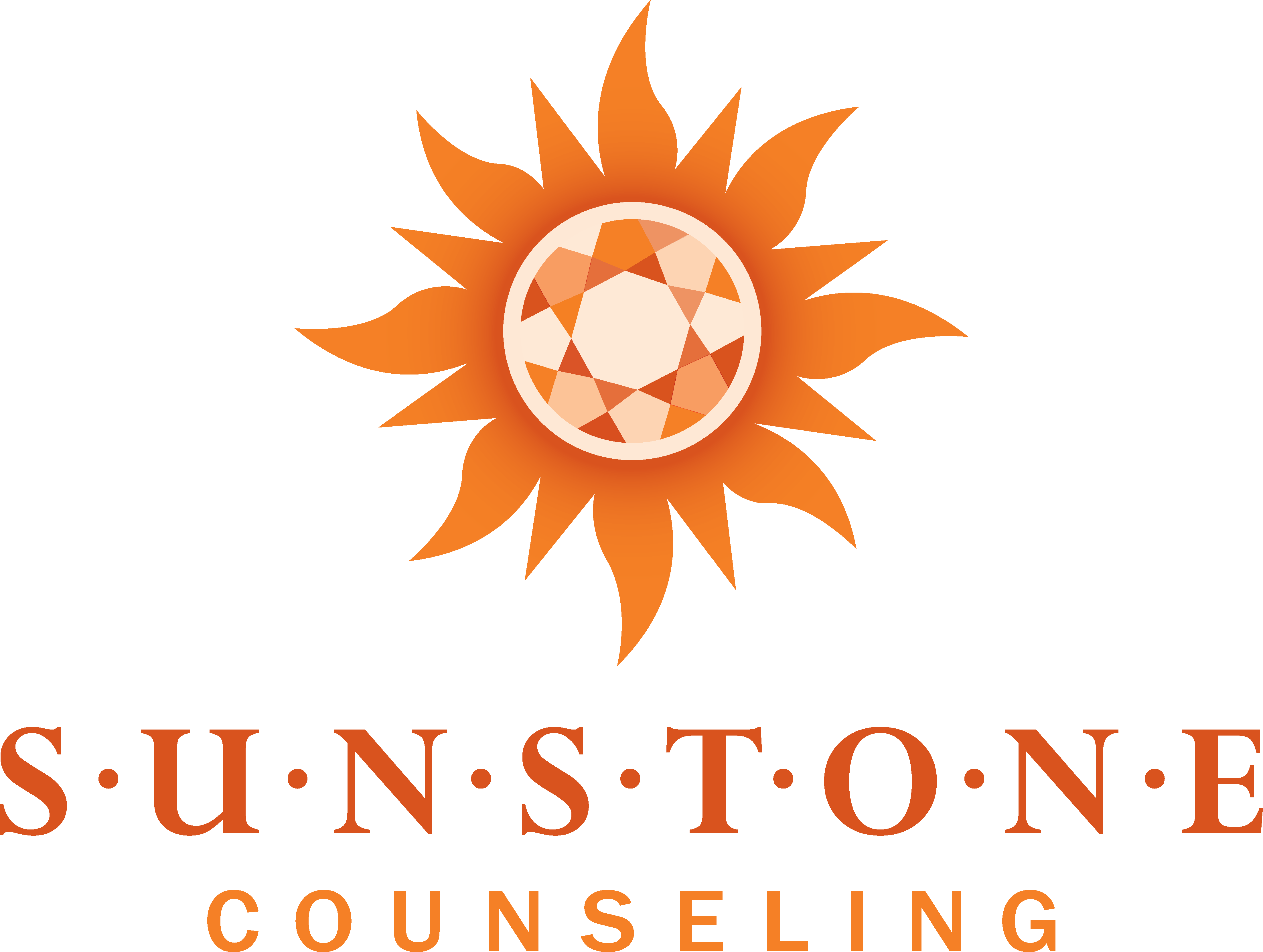- Practice mindfulness and grounding before going to that party or dinner. Getting yourself in a good head space to calm your anxiety will keep you in the present moment and allow you to monitor your hunger/fullness cues more accurately.
- Use a support person: Generally, either a loved one or friend that you trust will be at the event with you. If not, technology is a wonderful thing; you can reach out to them virtually. Share with them your fears and anxieties so they can help keep you accountable. People can only help you as much as you let them.
- Plan ahead: familiarize yourself with the menu or bring a potluck dish you know you enjoy. Avoid labeling or ruling any foods out; rather use this to calm any all-or-nothing thinking around having something you can eat.
- Remember: Getting yourself “seconds” is normal. It does not have to make you engage in compensatory behaviors. It is a normal part of being at a holiday party/dinner. Allow yourself permission to enjoy the experience.
- Remind yourself that it is more about the experience than the food. Sharing in your thankfulness with the people that you love is the most special part of this season. If you find yourself getting caught in an anxiety loop about food, use thought stopping to bring you back to this interpersonal experience you are having.
- Do not skip your outpatient appointments if you can. While it is a hectic time of year, it can be when we need our therapists and dietitians the most. Use the professional network that you have built to keep you on the road to recovery.
- Practice forgiveness and self-compassion. The holiday season extends for quite some time. If you have a moment of weakness throughout these months: it is ok. Acknowledge that perfection is a myth, remember what you have done well, and seek validation from your support system.
Perhaps you are someone who is supporting a loved one in your life with an eating disorder this holiday season. Being a support person/caregiver is also a stressful experience on top of holiday pressures. You are an important, and needed, part of the recovery process.
Here are some tips to help you help others:
- Lend a listening ear: have open and honest communication about your loved one’s triggers and their associated coping skills to know where and when you can help them. Help them initiate this conversation; it will be well worth it.
- Check your relationship with food so to be a positive role model. Be aware of the messages you are sending based on the foods you eat or the comments you make about food.
- Steer away from food talk at the table while eating with your loved one. Instead, focus the conversation on what you are grateful for — past, present, and future.
- The dishes can wait an hour! While your loved one digests and tries to stay grounded, plan a fun activity for after the meal like a board game or a puzzle to do with others.
- Have your own mindful activity. Our emotions can easily project onto others if were are not taking care of what we need. Take time to check in with your emotions, create calm in your mind, to be a better support for your loved one struggling with an eating disorder this season.
No matter what side of the recovery journey you are on, these tips will allow you to focus more on the true meaning of the holidays! Addressing and working through these struggles allows more space in the mind to enjoy the positives this time of year brings.
If you are struggling with knowing where to start – whether in your own recovery journey or in helping others – let us know. Our counselors can help you navigate the holiday season with confidence and support.





